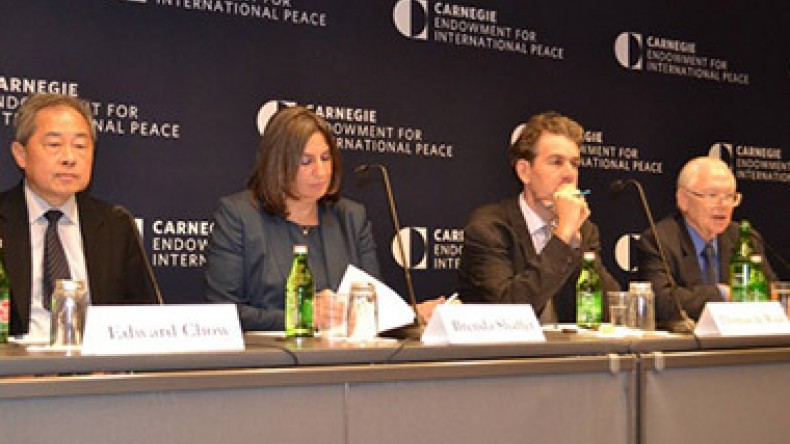
Lobbyists of Azerbaijani authorities failed to persuade Washington to support election results
Lobbyists of Azerbaijani authorities failed to persuade the audience in Washington to support the outcome of elections held on October 9, writes the Azerbaijani news agency "Turan".
The article notes that the event entitled "Looking into the future of Azerbaijan" was held at the Carnegie Endowment, and its members have tried to argue what awaits the country in the upcoming five years in the frameworks of the third term of President Ilham Aliyev.
As the correspondent of "Turan" who was present at the hearings reports, opinions of the attendees differing on this subject were completely different. The keynote address was made by the expert of Carnegie Endowment Thomas de Waal; former U.S. Ambassador to Russia James Collins was a debate moderator. They both will visit Baku in November.
According to them, the current elections in Azerbaijan did not different from all the previous ones that much, though the next stage of development in the country will be more difficult than the previous one. The oil boom will end, and there will be an opportunity to become a major gas supplier to Europe.
"There is discontent in the Azerbaijani society and mainly because of the corruption and gross inequalities in the wealth distribution. Though the opposition failed to win the popular vote, it will still hope for protests and discontent among the population. The question is whether Aliyev will learn to live with the opposition?" says de Waal.
Speaking about the disposition of the State Department's about the elections, de Waal has told it was useful as an indicator showing that it was "very dangerous" to deviate aside.
Another speaker – a US-Israeli expert and well-known lobbyist of Azerbaijani government Brenda Shaffer, had a different opinion. "There is a lot of criticism about Azerbaijan, but there are other countries as well that create real problems," she said, commenting on the statement of the State Department.
Touching upon the democratic future of Azerbaijan, she added that the opposition leaders "do not want their country to experience the Arab uprisings." Schaeffer comments were supported by the representatives of the Embassy of Azerbaijan and their supporters in the audience.
As noted in the article, the course of the debate was suddenly changed by the former U.S. ambassador to Azerbaijan Richard Kozlarich. "I am deeply concerned about the direction, which Azerbaijan has taken. These elections were bogus!" said Kozlarich, supporting the statement of the U.S. State Department.
"I would like to see at least one, any kind of, small step done towards democracy," he said, adding that the Aliyev’s government should immediately release the political prisoners, and allow the normal functioning of the independent media.
"Unfortunately, in Azerbaijan we see steps that are opposite of this," Miriam Lansky, director of the NED added. She noted that 10 years ago, Azerbaijan wanted to enter NATO, to get closer to the EU, to have the same rankings in the international reports as Georgia, and now, Azerbaijan is closer to Uzbekistan.
Summing up the debate, James Collins noted that the Azerbaijani government will face many challenges, because "he will have more expectations, with less money and resources."
Commenting on the outcome of the discussions one of the attendees, a former diplomat, noted that the speeches of some of the speakers is an example of the fact of how the Government of Azerbaijan, where the human rights, as well as democracy and freedom fail, seeks and finds friends in places with high priorities of democracy, as Washington. "These lobbyists are using their relations with the U.S. government to promote the interests of their clients," he noted.
Newsfeed
Videos






























